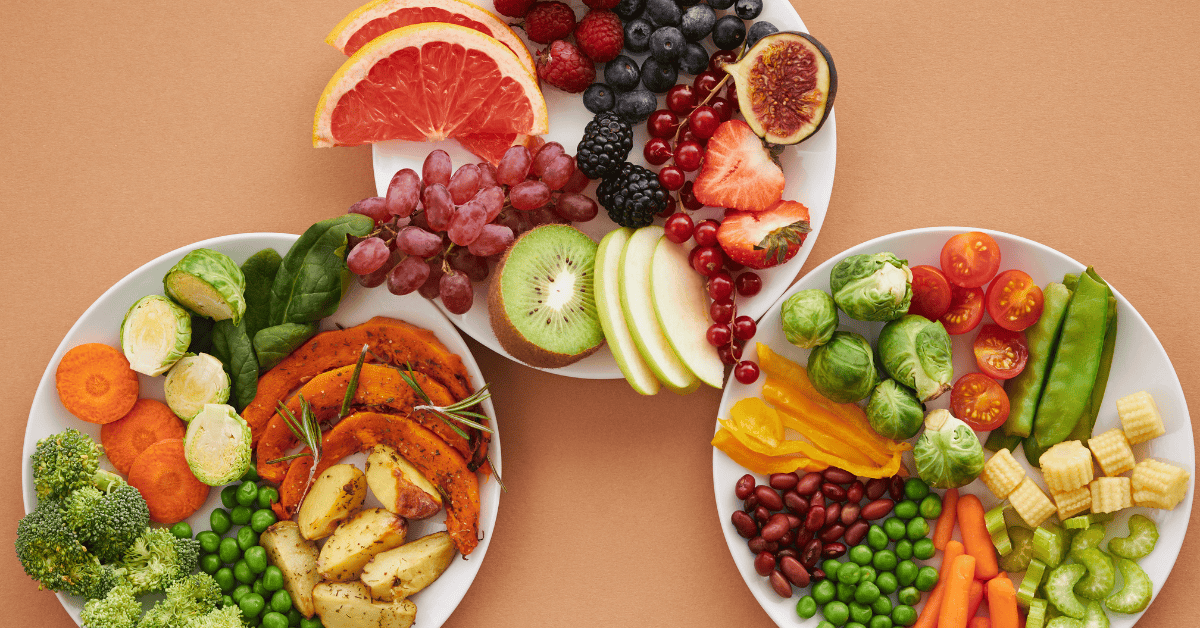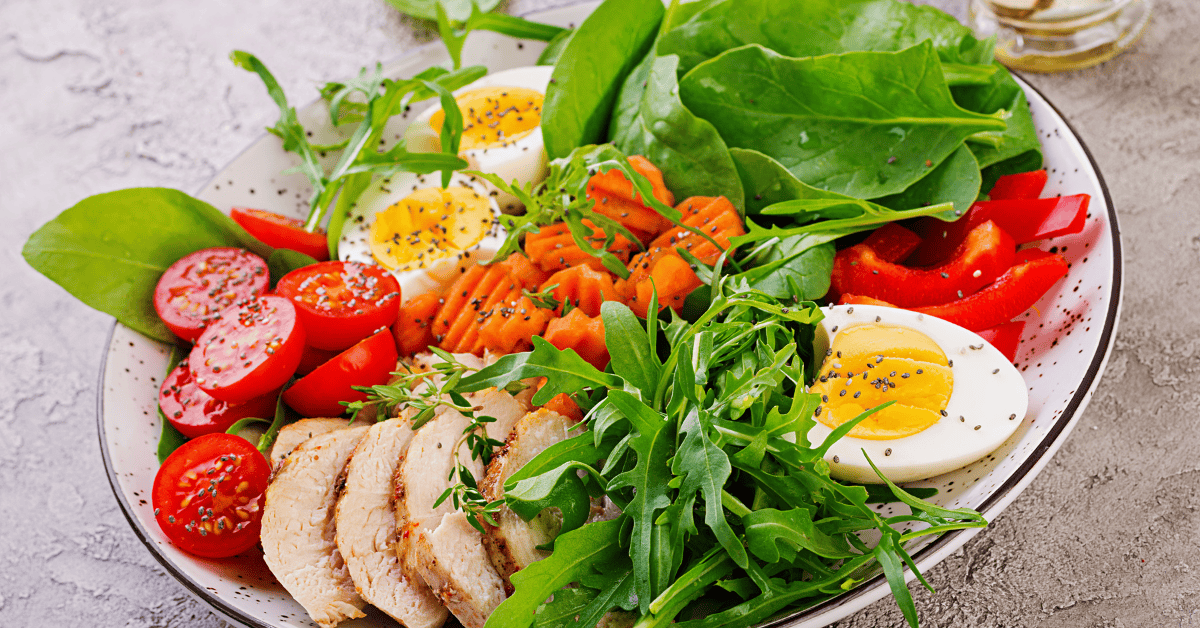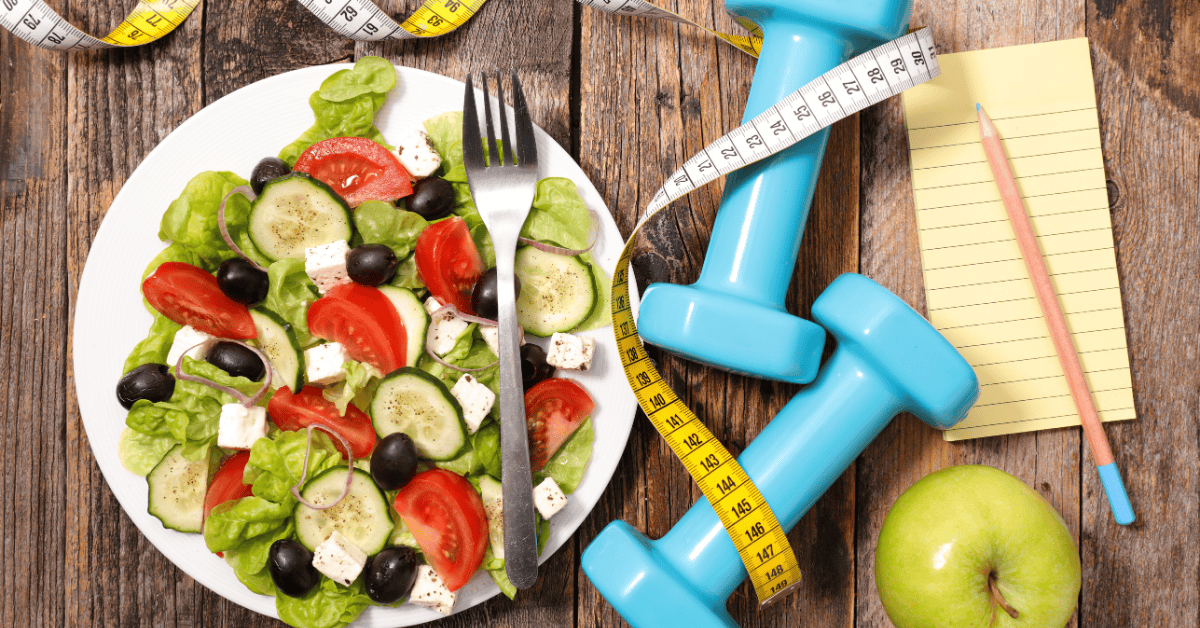Let’s talk guts. Yours, mine, everyone’s. That rumbling, sometimes gurgling, occasionally rebellious ecosystem inside us. We’ve all felt it—the bloat after a big meal, the sluggishness when things just aren’t moving right, maybe even the skin flare-ups or low moods that seem weirdly connected to what we ate. It’s easy to ignore, right? Until it isn’t. Until that discomfort becomes a constant background noise.
But what if fixing it—or at least, making it way better—wasn’t about drastic diets or impossible restrictions? What if it just took 21 days and focusing on a handful of genuinely doable habits? That’s the promise packed into that video we’re unpacking today.
Seriously—it’s less about magic pills and more about small, consistent shifts that your gut will actually thank you for. Ready to feel lighter, brighter, and just… better? Let’s dive in.
Why Should You Even Care About Your Gut? It’s Just Digestion, Right?
Oh, friend. If only it were that simple. Think of your gut—your gastrointestinal tract, from mouth to, well, exit—not just as a food processor, but as the command center for so much more. It’s home to trillions of bacteria, viruses, and fungi collectively known as your gut microbiome. This isn’t some passive sludge; it’s a buzzing metropolis of microscopic life, constantly communicating with your brain, your immune system, your hormones—pretty much everything.
The Immune System Hub: Get this—roughly 70-80% of your immune cells hang out right there in your gut lining. That microbiome? It’s training those immune cells, teaching them what’s friend (like nutrients) and what’s foe (like harmful bacteria). A messed-up gut often means a confused, overworked, or underperforming immune system. Hello, constant colds and feeling run down.
The Second Brain (No, Really): Ever get “butterflies” when nervous? Or feel nauseous with stress? That’s the gut-brain axis in action. Your gut produces more neurotransmitters than your brain does—including about 90% of your body’s serotonin, the “feel-good” chemical. An unhappy gut can directly contribute to anxiety, low mood, and brain fog. It’s a two-way street—stress messes with your gut, and a messed-up gut fuels stress. Vicious cycle.
Beyond the Bathroom: Sure, constipation, diarrhea, bloating, gas—classic gut trouble signs. But the ripple effects are huge. Skin conditions like acne or eczema? Often linked to gut health. Unexplained fatigue? Yep. Difficulty managing weight? Your microbiome plays a role in how you extract energy from food and store fat. Even autoimmune conditions are increasingly linked to gut dysbiosis (that’s microbiome imbalance).
So, yeah. Caring about your gut isn’t just about avoiding belly aches. It’s foundational to feeling vibrant, energized, mentally clear, and resilient. Ignoring it is like ignoring the check engine light in your car—eventually, things break down in bigger, more expensive ways.

The Big Promise: Can 21 Days Really Make a Difference?
Skeptical? I get it. We’re bombarded with quick fixes that fizzle out fast. But the “21 Days to a Healthier Gut” concept isn’t pulled from thin air. It’s grounded in some solid biology:
Microbiome Turnover: While your gut bacteria are constantly active, the populations themselves can shift relatively quickly. Studies suggest significant changes in microbiome composition can be detected within days of dietary changes. 21 days gives enough time for beneficial strains to start flourishing and less helpful ones to diminish—if you consistently feed the good guys.
Habit Formation Magic: The famous “21 days to form a habit” idea (while a bit simplified—it varies per person and habit) is a useful psychological framework. Committing to something for three weeks feels manageable. It’s long enough to see tangible results (hello, motivation!) but short enough not to feel overwhelming. It’s a reset period, a focused experiment on yourself.
Breaking Bad Cycles: Many gut irritants (like ultra-processed foods, excessive sugar, chronic stress) create inflammation and damage over time. Consistently removing or reducing these triggers for 21 days allows the gut lining a chance to repair itself. Inflammation starts to cool down. That irritated feeling begins to subside.
The Proof is in the… Poop (and How You Feel): Within this timeframe, many people report noticeable improvements: reduced bloating, more regular bowel movements, better energy levels, clearer skin, improved mood, and fewer cravings. These positive changes reinforce the new habits, making them more likely to stick beyond the initial 21 days.
It’s not about achieving “perfect” gut health forever in three weeks. It’s about jumpstarting the process, proving to yourself that small changes yield big results, and setting up a sustainable foundation. Think of it as hitting the reset button and establishing a new, healthier baseline.
Forget Fads: The 6 Gut-Healing Habits That Actually Work (and Why)
Okay, here’s the core of the video—the six habits designed to transform your gut health in just 21 days. The brilliance? None are extreme. They’re accessible, practical, and focused on adding goodness rather than just taking things away. Let’s break each one down:
Habit 1: Befriend Fiber – Especially the Prebiotic Kind (Your Gut Bugs’ Favorite Food)
What it Means: Prioritize getting 25-35 grams of fiber daily, but crucially, make a significant chunk of that prebiotic fiber. Prebiotics are specific types of soluble fiber that humans can’t digest, but your beneficial gut bacteria love to feast on. They’re fertilizer for your microbiome.
Why it Works: Feeding the good bacteria (probiotics) helps them multiply and produce beneficial short-chain fatty acids (SCFAs) like butyrate. Butyrate is like rocket fuel for your gut lining cells, reducing inflammation, strengthening the gut barrier (preventing “leaky gut”), and even signaling satiety to your brain.
How to Do It (Realistically):
Load up on: Garlic, onions, leeks, asparagus, Jerusalem artichokes (sunchokes), bananas (especially slightly green ones), oats, barley, apples, flaxseeds, chia seeds, dandelion greens.
Start slow! Jumping from 10g to 35g overnight is a recipe for bloating and gas. Increase your intake gradually over the first week.
Mix it up: Different prebiotic fibers feed different bacteria. Diversity is key!
Simple Swap: Add a tablespoon of ground flax or chia to your morning yogurt or smoothie. Toss onions and garlic into everything savory. Snack on an apple with skin.
Habit 2: Sip Smart – Ditch the Sugary Drinks & Hydrate Like a Pro
What it Means: Drastically reduce or eliminate sugary sodas, juices, fancy coffee drinks, and excessive alcohol. Focus instead on pure water and gut-friendly beverages. Aim for at least 8 glasses (64 oz) of water daily, more if active.
Why it Works: Sugar is public enemy #1 for a healthy gut. It feeds harmful bacteria and yeast (like Candida), leading to dysbiosis, inflammation, and that dreaded bloat. Alcohol is directly irritating to the gut lining and disrupts the microbiome. Dehydration slows everything down—digestion, motility (the movement of food), and toxin removal. Water is essential for forming stool and keeping things moving smoothly.
How to Do It (Realistically):
Water First: Start your day with a big glass of water (maybe warm lemon water if that’s your thing). Carry a reusable bottle everywhere.
Infuse it: Bored with plain water? Add slices of cucumber, lemon, lime, orange, berries, or fresh mint.
Gut-Soothing Sips: Incorporate unsweetened herbal teas like peppermint (great for bloating), ginger (aids digestion, reduces nausea), chamomile (calming), or fennel (relieves gas).
Limit Damage: If you have a soda habit, switch to sparkling water (check for no artificial sweeteners). Dilute juice heavily with water. Limit alcohol to 1-2 drinks max, preferably not daily, during the 21 days.
Habit 3: Move Your Body – But Keep It Gentle & Consistent (No Marathons Needed!)
What it Means: Engage in moderate, daily movement for at least 30 minutes. Think brisk walking, light cycling, swimming, yoga, tai chi, gentle stretching. The goal is consistent activity, not intense, gut-jarring workouts.
Why it Works: Exercise stimulates the muscles in your digestive tract, promoting regularity and preventing constipation. It reduces stress hormones (like cortisol), which are notorious for wreaking havoc on gut function and the microbiome. Increased blood flow aids digestion and nutrient absorption. It also helps manage weight, another factor linked to gut health.
How to Do It (Realistically):
Walk it Out: A daily 30-minute walk is the gold standard. Park farther away, take the stairs, walk while on phone calls.
Yoga for Digestion: Specific yoga poses (like twists and gentle forward folds) can massage internal organs and stimulate digestion.
Listen to Your Gut: If you’re feeling inflamed or in a flare, intense exercise can worsen it. Opt for gentle movement like stretching or walking. Consistency over intensity wins for gut healing.
Make it Enjoyable: Pick something you don’t dread! Dance in your living room, garden, play with kids/dogs.
Habit 4: Sleep – Your Gut’s Non-Negotiable Repair Shift
What it Means: Prioritize getting 7-9 hours of quality, uninterrupted sleep every single night. Establish a calming bedtime routine and a consistent sleep schedule (even on weekends!).
Why it Works: Sleep is prime repair time for your entire body, including your gut. Disrupted sleep throws off your circadian rhythm, which directly impacts your gut microbiome composition and function. Lack of sleep increases stress hormones (cortisol again!), which damages the gut lining and promotes inflammation. Poor sleep also disrupts hunger hormones (ghrelin and leptin), leading to cravings for sugary, gut-damaging foods.
How to Do It (Realistically):
Set a Schedule: Go to bed and wake up within the same 1-hour window daily. Yes, weekends too. This regulates your body clock.
Wind Down Ritual: Start 60-90 mins before bed: dim lights, power down screens (blue light kills melatonin!), read a physical book, take a warm bath, listen to calm music, practice light stretching or meditation.
Optimize Environment: Dark, cool (around 65°F/18°C), quiet room. Blackout curtains, eye mask, earplugs, white noise machine if needed. Comfortable mattress/pillows.
Avoid Late Feasts & Stimulants: Finish eating 2-3 hours before bed. Avoid caffeine after noon, and limit alcohol close to bedtime (it disrupts sleep quality).
Habit 5: Chill Out – Master Your Stress for Your Gut’s Sake
What it Means: Actively incorporate daily stress-reduction techniques. This isn’t optional fluff; it’s critical medicine for your gut. Aim for 10-20 minutes daily of dedicated stress management.
Why it Works: Stress (acute or chronic) is a major gut disruptor. It triggers the “fight-or-flight” response, diverting blood flow away from your digestive system (not a priority when running from a lion!). This slows digestion, reduces enzyme production, alters gut motility (hello, stress-induced diarrhea or constipation!), and weakens the gut barrier. Stress hormones also directly alter the gut microbiome balance, favoring harmful bacteria. Chronic stress = chronic gut inflammation.
How to Do It (Realistically):
Breathe Deeply: Simple diaphragmatic breathing (belly breathing) for 5 minutes can activate the relaxation response instantly. Inhale deeply through nose for 4 counts, hold for 4, exhale slowly through mouth for 6 counts. Repeat.
Meditation & Mindfulness: Apps like Calm, Headspace, or Insight Timer offer great guided meditations, even just 5-10 minutes. Focus on being present.
Gentle Movement: Yoga, tai chi, walking in nature – combines movement with mindfulness.
Connect & Laugh: Spend time with loved ones, watch a funny show, play with a pet. Social connection and joy are potent stress-busters.
Just Say No: Protect your time and energy. Don’t overcommit. Setting boundaries reduces chronic stress.
Habit 6: Slow Down & Chew – The Most Underrated Digestion Hack
What it Means: Chew your food thoroughly (aim for 20-30 chews per bite!) and eat without distractions. Put down the phone, turn off the TV, step away from the computer. Focus on your meal.
Why it Works: Digestion starts in the mouth. Chewing mechanically breaks down food and mixes it with saliva, which contains the first digestive enzyme (amylase). The more you chew, the less work your stomach and intestines have to do. It signals your stomach to produce acid and primes the rest of the digestive system. Eating slowly allows your brain to register fullness cues (which take about 20 minutes), preventing overeating and the bloating that comes with it. Distracted eating leads to swallowing air (aerophagia) and poor chewing, both gut irritants.
How to Do It (Realistically):
Put Down the Utensils: Between bites. Seriously. It forces a pause.
Set a Timer (Initially): Aim for 20 minutes per meal. It feels long at first, but it helps retrain speed.
Engage Your Senses: Notice the colors, smells, textures, and flavors of your food. Appreciate it.
Distraction-Free Zone: Make meals a phone/TV-free time. Eat at a table if possible.
Count Chews: Try counting to 20-30 chews for the first few bites of each meal until it becomes more habitual.

What Does 21 Days Actually Look Like? A Realistic Timeline
Okay, you’ve got the habits. But how do they play out day by day? Let’s be real—it’s not always linear sunshine. Here’s a likely progression:
Days 1-3: The Adjustment Phase (Embrace the Grumble)
Feelings: Enthusiasm mixed with… weirdness. You might feel more bloated initially (especially with increased fiber), maybe a headache (sugar/alcohol withdrawal), fatigue, or cravings. Digestion might feel slower or unpredictable.
Focus: Hydration! Go slow on fiber increases. Be gentle with movement. Prioritize sleep. Don’t panic—this is often your body adjusting. Stick with it.
Days 4-7: Finding Your Rhythm (The Glimmers Begin)
Feelings: Cravings start to lessen. Energy levels might begin to stabilize or even improve slightly. Bloating should start decreasing if you paced your fiber. Bowel movements might become more regular. You might notice feeling a bit calmer.
Focus: Consistency is key now. Keep practicing all six habits. Celebrate the small wins—like actually chewing your food! Notice any subtle shifts.
Days 8-14: The Turnaround (Feeling the Shift)
Feelings: This is often where the magic becomes noticeable. Bloating significantly reduced or gone. Consistent, comfortable bowel movements. Sustained energy throughout the day (no 3 PM crash!). Improved mood and mental clarity. Skin might start looking clearer. Sleep quality improves. Cravings are much more manageable.
Focus: You’re hitting your stride! The habits start feeling less like chores and more like just… what you do. Notice how much better you feel—let that motivate you. Experiment with new prebiotic foods.
Days 15-21: Solidifying the Gains (Hello, New Normal!)
Feelings: The positive changes feel more established. Gut feels calm and happy most of the time. Energy is good. Mood is stable. You genuinely prefer feeling this way. The thought of sugary drinks or rushed meals might even feel unappealing.
Focus: Reflect on the journey. How do you feel compared to Day 1? Which habits feel effortless now? Which need a bit more attention? Start thinking about how to carry this forward beyond 21 days. You’ve built a solid foundation!
But Wait… What About Probiotics? (The Video’s Nuanced Take)
You might be wondering—where are the probiotics? The video likely addressed this smartly. While probiotics (beneficial live bacteria found in supplements and fermented foods like yogurt, kefir, sauerkraut, kimchi, kombucha) can be helpful, the video emphasizes they aren’t the starting point or a magic bullet during this initial 21-day reset. Why?
Feed What You Have First: Taking probiotics without feeding them prebiotics is like parachuting soldiers into a warzone with no supplies. The “6 Habits” focus heavily on prebiotics (Habit 1) to nourish your existing good bacteria, creating a welcoming environment first.
Strain Specificity Matters: Not all probiotics are created equal. Different strains do different things. Diving into supplements without knowing what you need can be ineffective or even cause temporary discomfort. Getting the foundation right (diet, lifestyle) often allows your native microbiome to rebalance naturally.
Fermented Foods > Supplements (Initially): The video likely suggested focusing on food-based probiotics (like a daily serving of plain yogurt, kefir, or sauerkraut) during the 21 days rather than complex supplements. This provides diversity and co-factors without overwhelming your system.
Post-Reset Consideration: Once the 21 days are up and your baseline is improved, then exploring specific probiotic supplements (perhaps guided by a healthcare provider or based on specific needs) makes more sense. The video probably positioned them as a potential next step, not the core reset tool. The habits are the bedrock.
Beyond the 21 Days: Making This Your Gut-Healthy Life
The finish line isn’t Day 21. It’s the starting line for a new, gut-conscious lifestyle. The goal is integration, not perfection:
Habits are Flexible, Not Fragile: Had a weekend with less sleep, more treats, and skipped walks? Don’t declare failure! Just gently return to your core habits at the next meal or the next day. Progress, not perfection. The 21 days build resilience so a slip-up doesn’t derail everything.
Listen to Your Body: You are now more attuned to how foods and actions affect your gut. Use that wisdom! If something consistently causes bloating or discomfort, maybe it needs limiting. If gentle movement makes you feel great, prioritize it. Your body gives the best feedback.
The 80/20 Rule (or 90/10): Aim to follow the core habits 80-90% of the time. This leaves room for life—birthdays, vacations, spontaneous dinners—without guilt or gut Armageddon. Enjoy that slice of cake, savor that glass of wine, then simply return to your nourishing habits.
Keep Exploring: Gut health is a journey. Maybe delve deeper into fermented foods post-reset. Explore different stress-management techniques. Learn about new prebiotic sources. Stay curious!
Track Your Wins: Notice how much better you feel overall—more energy, clearer skin, stable mood, reliable digestion. That’s the ultimate motivator to keep prioritizing your gut.
Real Talk: Potential Hurdles & How to Leap Over Them
Let’s not sugarcoat it. Life happens. Anticipate challenges:
The Fiber Farts & Bloat: Increase prebiotic fiber slowly. Drink tons of water. Consider digestive enzymes (like Beano) temporarily if legumes are a big trigger. Peppermint tea or capsules can help soothe gas. It does get better as your microbiome adjusts!
Time Crunch: Batch cook fiber-rich foods (roast veggies, cook beans/grains). Prep chia pudding overnight. Keep healthy snacks handy (apples, nuts). Short on time for movement? Break it into 10-minute walks. Prioritize sleep—it makes everything else more efficient. Even 5 minutes of deep breathing counts for stress management.
Social Pressure & Cravings: Be politely assertive. “I’m focusing on feeling my best right now, but I’d love the company!” Bring a gut-friendly dish to share. Stay hydrated—thirst is often confused with hunger/cravings. Ride out cravings; they usually pass in 10-15 minutes. Distract yourself.
Feeling Overwhelmed: Focus on ONE habit at a time for the first few days if needed. Master hydration, then add chewing slowly, then fiber, etc. Celebrate every single small win. Remind yourself why you started—how bad did that bloat or fatigue feel?
Plateau or Slow Progress: Be patient. Some bodies take longer to adjust. Double-check you’re truly implementing all six habits consistently. Are you really chewing slowly? Getting enough sleep? Managing stress? Sometimes a slight tweak (more water, different prebiotic sources) helps. Trust the process.
The Ripple Effect: How a Healthier Gut Transforms Everything
Committing to these 21 days does more than just quiet a rumbling tummy. The benefits cascade:
Energy Explosion: Efficient digestion and nutrient absorption mean more fuel for your cells. Stable blood sugar prevents energy crashes. Say goodbye to the 3 PM slump!
Mood on Point: Remember that gut-made serotonin? A balanced microbiome supports balanced brain chemistry. Reduced inflammation also lifts the mental fog. You’ll likely feel calmer, more resilient, and just… happier.
Bye-Bye Bloat, Hello Comfort: This is the most immediate win for many. Reduced gas, comfortable digestion, predictable bowel movements—freedom from that constant abdominal discomfort and tight waistbands.
Glowing Skin: Reduced systemic inflammation and better toxin elimination often lead to clearer, calmer, more radiant skin. Gut health and skin health are deeply intertwined.
Stronger Immunity: A well-trained immune system in your gut means fewer colds, quicker recovery, and better defense against bugs. Your gut army is on duty!
Effortless(ish) Weight Management: Cravings stabilize. Hunger hormones (ghrelin and leptin) function better. Your body utilizes nutrients more efficiently. While not a weight loss program per se, many find maintaining a healthy weight becomes easier.
Long-Term Health Investment: Reducing chronic inflammation and supporting a diverse microbiome is linked to a lower risk of numerous chronic diseases down the line—heart disease, type 2 diabetes, certain autoimmune conditions, even neurodegenerative diseases. This is preventative medicine in action.

Your Gut Health Journey Starts Now (Seriously, Right Now)
So, there you have it. Not a restrictive diet, not a punishing exercise regime, not expensive supplements. Just six fundamental, research-backed habits, practiced consistently for 21 days. It’s about working with your body, not against it. It’s about nourishing the incredible ecosystem within you that influences virtually every aspect of your well-being.
Is it always easy? Maybe not the first few days. But is it worth it? Absolutely, unequivocally yes. The potential to feel more energetic, mentally sharp, emotionally balanced, physically comfortable, and just plain vibrant is huge. And it all starts in your gut.
You don’t need fancy gear or a PhD. You just need commitment for three weeks. Pick a start date. Stock up on onions, garlic, oats, and herbal tea. Fill that water bottle. Charge your walking shoes. Practice taking deep breaths. Commit to chewing.
Your future self—the one with the happy gut, clear skin, boundless energy, and calm mind—is waiting. What are you waiting for? Start your 21 days today.
Ready to track your progress and discover more personalized gut health insights? Explore the resources at GEMSCOR: https://gemscor.com/
Gut Health Reset: Your Top 15 Questions Answered (FAQs)
Let’s tackle the real questions people are punching into Google about fixing their gut in 21 days:
Will this 21-day gut reset help me lose weight? While not primarily a weight loss plan, many people do experience weight normalization or loss as a side effect. Reduced bloat, better appetite regulation, stabilized blood sugar, less inflammation, and decreased cravings for junk food all contribute. Focus on feeling better first; weight often follows.
I have IBS/SIBO. Is this plan safe for me? Proceed with caution and consult your doctor or a registered dietitian first. The high fiber (especially certain prebiotics/FODMAPs) might trigger symptoms during a flare. You might need a modified low-FODMAP approach initially, reintroducing prebiotics slowly later. Stress management and gentle movement are usually very beneficial.
What’s the difference between probiotics and prebiotics? Probiotics are LIVE beneficial bacteria (found in supplements & fermented foods like yogurt, kefir, sauerkraut). Prebiotics are the SPECIALIZED FIBER that feeds the good bacteria already in your gut (and the probiotics you consume). You need both, but prebiotics are the food (think fertilizer). This plan focuses heavily on prebiotics first.
Do I need to take a probiotic supplement during the 21 days? The video suggests it’s not essential initially. Focus on prebiotic foods (Habit 1) to feed your existing good bacteria. Including food-based probiotics (like plain yogurt or sauerkraut) is great. Save complex supplements for after the reset or if advised by a professional.
How much water should I actually drink? The “8 glasses” (64oz) is a general baseline. Needs vary by size, activity, climate. A better gauge: your urine should be pale yellow. If it’s dark, drink more! Increase intake if sweating or consuming caffeine/alcohol. Herbal teas count!
Why am I MORE bloated when I start eating more fiber? Totally common! Your gut bacteria aren’t used to the feast and produce gas as they ferment the new fiber. Increase fiber intake GRADUALLY (over a week or two), drink LOTS of water, and consider digestive enzymes temporarily. It usually subsides as your microbiome adjusts.
Is coffee allowed? It wrecks my stomach! Coffee stimulates gut motility (can cause urgency) and increases stomach acid. If it bothers you, seriously limit it or skip it during the 21 days. If you must, have one small cup with food, early in the day. Herbal tea is a better choice.
What about alcohol? Completely off-limits? For best results in 21 days, minimizing or eliminating alcohol is ideal. It’s inflammatory, irritates the gut lining, disrupts the microbiome, and dehydrates you. If you choose to drink, limit to 1-2 drinks max, infrequently, with lots of water, and avoid sugary mixers.
I hate vegetables. How can I get enough fiber? Focus on fruits (berries, apples, pears with skin), oats, chia seeds, flaxseeds, beans (start with small amounts like in soups), lentils, and nuts. Smoothies can be a good way to sneak in greens or avocado. Persistence helps—tastes can change!
Can I exercise intensely during this reset? Gentle to moderate movement (like walking, yoga, swimming) is best, especially in the first week. Intense exercise can be stressful on the body and gut during a reset. Listen to your body. If intense workouts are your norm, maybe dial back intensity slightly and focus on recovery (sleep, hydration).
What if I cheat? Did I ruin everything? NO! Absolutely not. One meal or one day doesn’t erase progress. Acknowledge it, enjoy it if you chose it, then simply return to your healthy habits at the next meal or the next day. Guilt is more damaging than the cheat itself. Consistency over time is what matters.
Will this cure my food intolerances? Maybe, maybe not. If your intolerances are due to gut damage/dysbiosis (like lactose intolerance after antibiotics), healing your gut might improve tolerance. True allergies (like celiac) won’t be cured. Pay attention to how you feel reintroducing foods after the reset.
I’m always constipated. Will this help? Very likely! Adequate water, fiber (especially soluble fiber like oats, flax, chia), movement, stress reduction, and chewing properly all promote regularity. Be patient as your system adjusts.
How soon will I see results? Some people feel less bloated and more regular within days. Energy and mood often improve in the first week. More significant changes like clearer skin or sustained energy usually show up in weeks 2-3. Be patient—your body is healing.
What do I do AFTER the 21 days? Celebrate! Then, keep going. The 21 days build a foundation. Continue prioritizing the core habits (80/20 rule!). You might experiment with adding fermented foods more regularly, or exploring a probiotic if desired. Notice how good you feel—let that be your motivation to maintain your gut-friendly lifestyle. Track your long-term wins over at GEMSCOR: https://gemscor.com/














